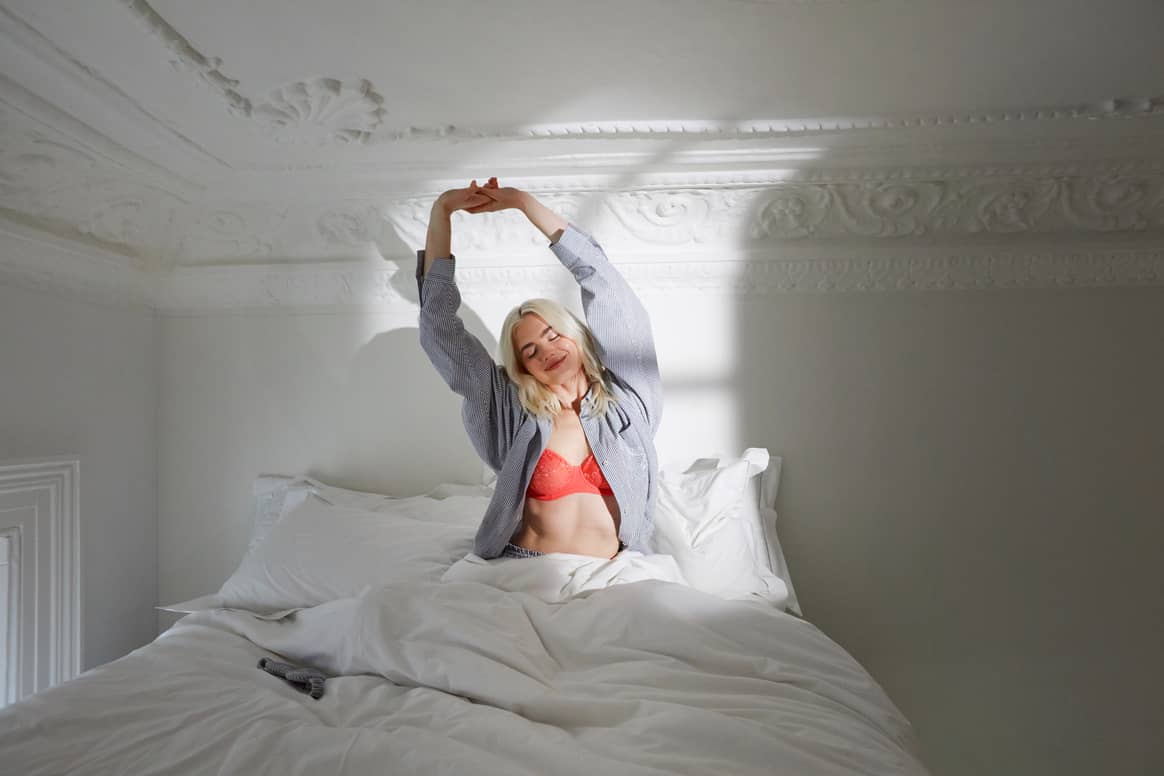Engaged in the clothing industry for 20 years.

Peachaus’ founder on setting a new precedent for lingerie and business
At a time when the industry has never been faster, the cry for a much needed change is becoming ever present. “People are beginning to set a new standard,” confirmed Gillian Ridley Whittle, the founder and CEO of UK-based lingerie, sleepwear and loungewear label, Peachaus. In fact, it was Whittle’s own relationship with the industry that led her to create this brand, where the people – not the product – are at the core of the vision.
The idea itself, conceived in Whittle’s former base of Australia, is centred around seasonless collections that put thoughtful production at the heart. Such features are also evident in the business itself, and have been built in by both Whittle – a former Topshop, Target and Marks & Spencer buying director – and her business partner Cedric Wilmotte, the current CEO of Michael Kors.
On the cusp of the brand’s two year anniversary and ahead of an upcoming campaign launch in March, FashionUnited touched base with Whittle at the Parisian trade fair Salon International de la Lingerie – the first international event for the brand – to talk about setting fresh expectations for clothing and the future of the Peachaus community.
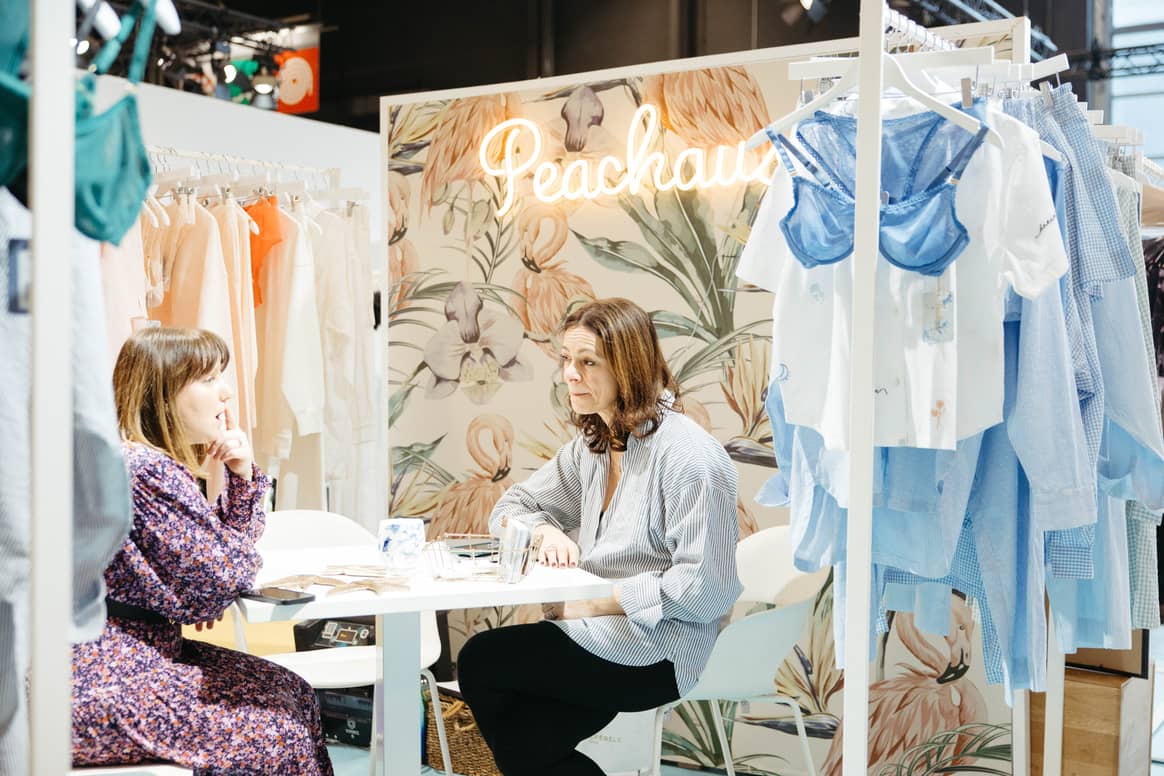
Let’s start with the name…
When I first came up with the concept, I was working in Australia, where I stayed for four years until I came back [to the UK] to work at Topshop. I always knew, when the time was right, that I would create a brand. I had an opportunity in between jobs to come up with a concept.
[In Australia,] I lived by the beach and thought the brand could be associated with a beach house. I love the Australian vibe, free-spirited energy, peace and beauty. There was also something very feminine and tactile about ‘peach’ and that’s what we wanted to be. So for ‘Peachaus’, we first thought ‘house’ to reference ‘community’, then Australia – so ‘Aus’. ‘Peach’ referenced ‘peace’.
What is the core of the concept?
At the very core of the concept is a Peachaus Life which is ‘everyday beautiful’. We are a lifestyle brand so not only is the product important but so are the experiences. From a product perspective everything is designed to be a ‘work of art’ from the beauty of the design both inside and outside the garment and from the creativity that goes into it and the ethical materials we use. Our products are soft, comfortable and our underwear is light as air – so our customers tell us. In terms of our energy and experiences we’re about connected communities. It’s all about self-discovery, breaking away from our social norms, genuinely respecting each other as human beings and individuals. We pay and treat our suppliers fairly, we use the best materials, we use the best components. We’re about putting beauty back into a fashion brand.
We will be a fully circular brand. Because our resources are running out, we aren’t all about consuming and making more. Actually we’re saying, where we can, we will use less. We’re trying to make sure that we don’t just do what the fashion’s done for years. There’s a full circular end use for everything.
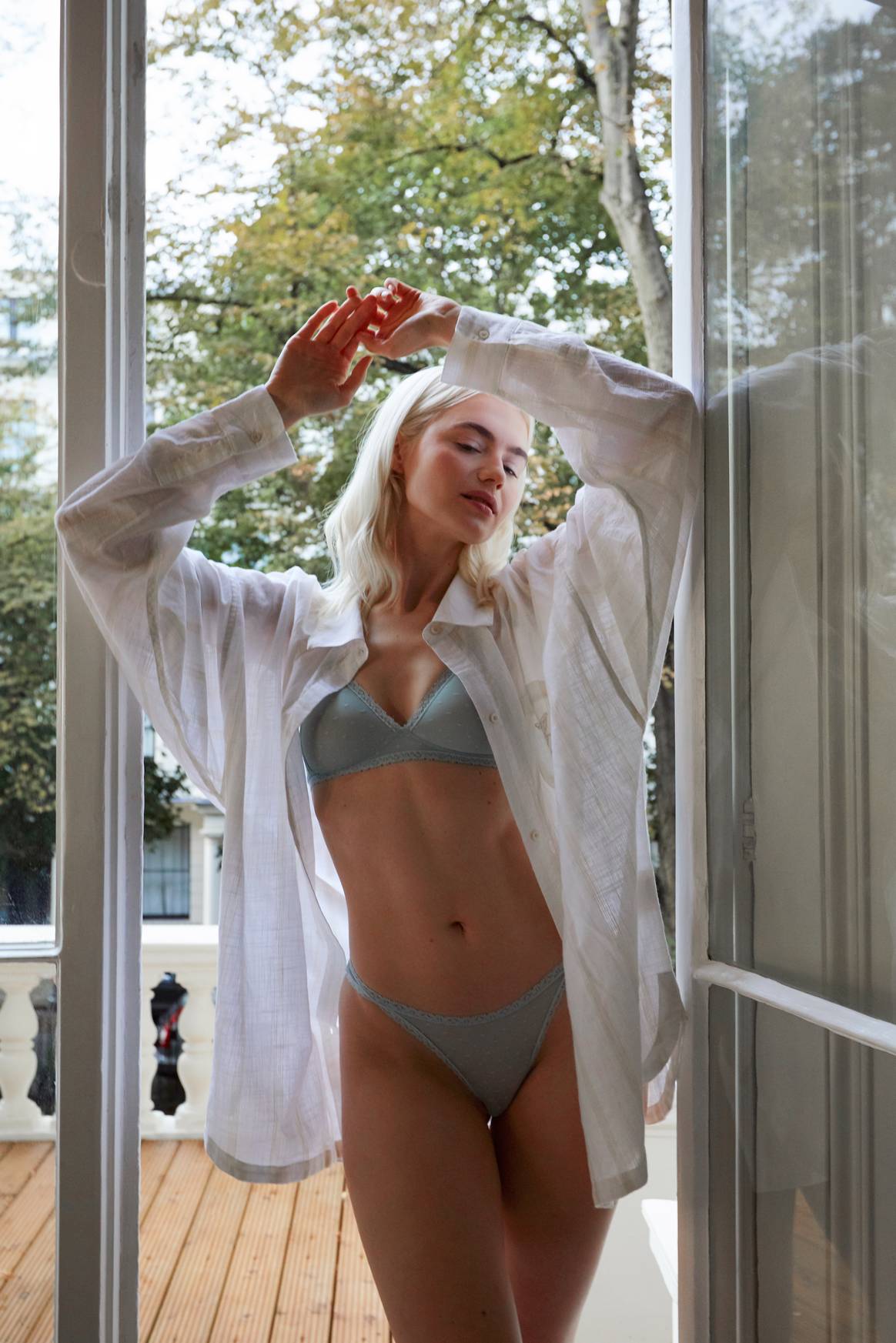
As an industry veteran, how did your past experience drive the creation of the brand?
I have always wanted to be in fashion. I’ve had a great career on the outside looking in as a woman. But I always felt there was something beyond a big job. I realised I was unhappy. I disliked the industry I thought I loved because it was flawed. I was part of something that actually was perpetuating damage.
To live a rich life with experiences that nourish you is I think a calling that we’re all having now. I went to Topshop when I got back from the UK, took the brand through Covid and it was a really difficult experience. I loved the brand, but it wasn’t the culture I would have chosen to go and work in. Then, after Asos bought Topshop and I got made redundant, Cedric Wilmotte, my now business partner who I met during Covid, decided the time was right to invest in the brand as he was seeking to invest in values, people, sustainable-centric brands and leave a legacy. He backed me, and we launched the brand in March 2022.
Has Wilmotte’s own experiences had any influence on the brand?
I drive the brand day-to-day. Cedric was quite involved at the beginning because he was in between roles at the time. He has been a great mentor, supporting with the business strategy, our distribution channels and he has opened up some other investors to me. He’s very particular about our tone of voice and our expression. He’s encouraging me to bring a campaign to the market, which will be led by an Italian agency and will launch in the beginning of March.
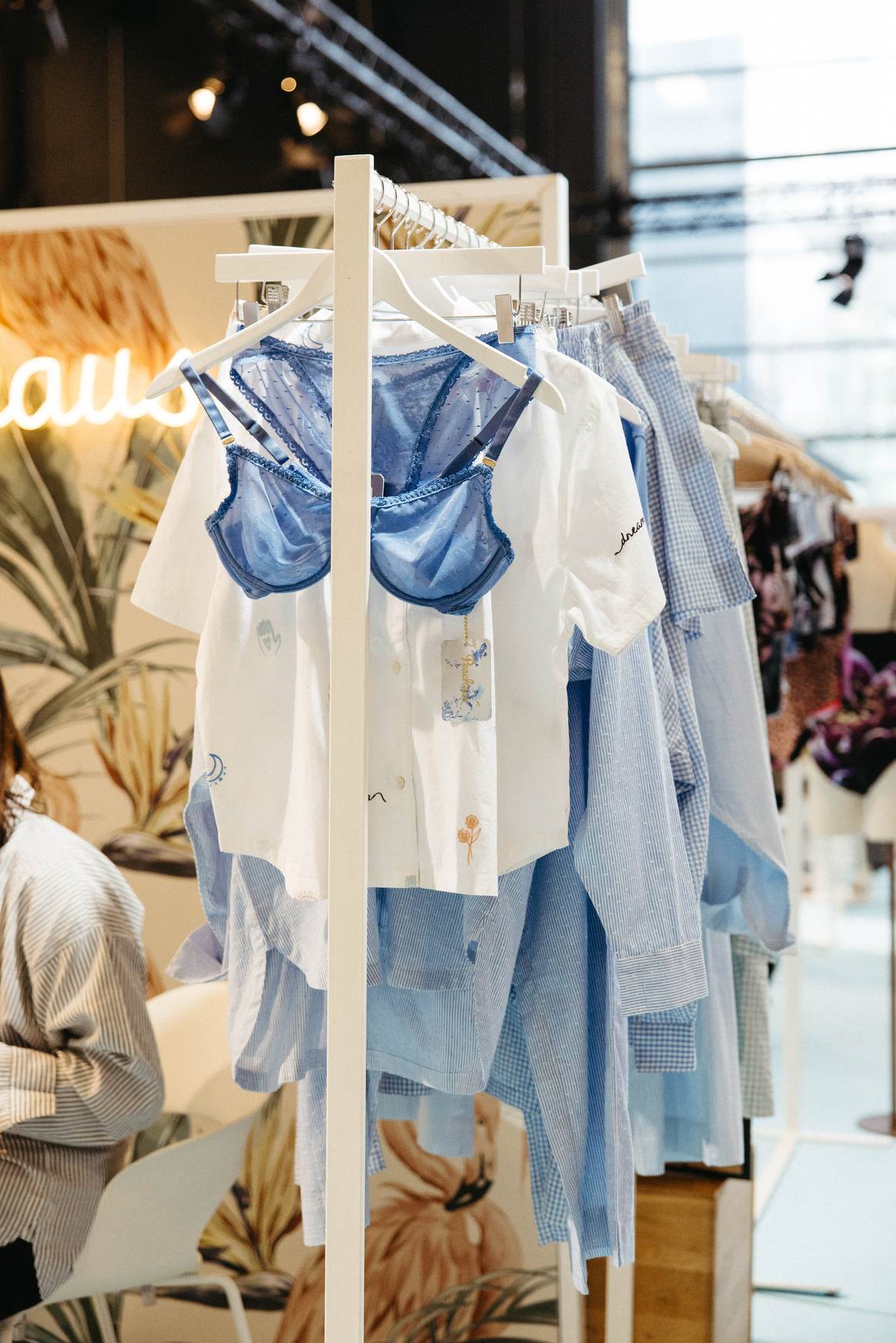
What are customers calling for from the clothing industry?
I’ve done a few focus groups recently, in which we talk about the biggest things in your life today. It’s mental health, friends and family, feeling safe and enjoyment. I believe all brands need to be responsible, transparent and honest, and authentically care about not only its people but the world around us and to demonstrate this throughout.
The Peachaus concept was always to create beautiful product but also to bring experiences to our customers, a place to discover, to connect, to feel safe and belong. Our plans include a lifestyle store and to take the brand on the road which is all in the pipeline. I talk a lot about energy now, I’m all about positive energy and connection. I’ve had my own personal revolution and I’m the happiest I’ve ever been. I want to bring that to other people. This brand is also a vehicle for me to do that.
How do you reflect your positive mindset in the products themselves?
I’ve come from mass manufacturing, where you haven’t got time to think about all the details. Volumes of product, you need to hit a margin, and to get a product into a price point which can drive you to use cheaper resources, cheaper fabrics. We’ve done the opposite, we’ve put so much love and care into every detail, we’ve used artists for our embroideries, beautiful fabrics, gold-star factories. It’s about the details and how our products make people feel. So not only considered and comfortable but with the right ethics.
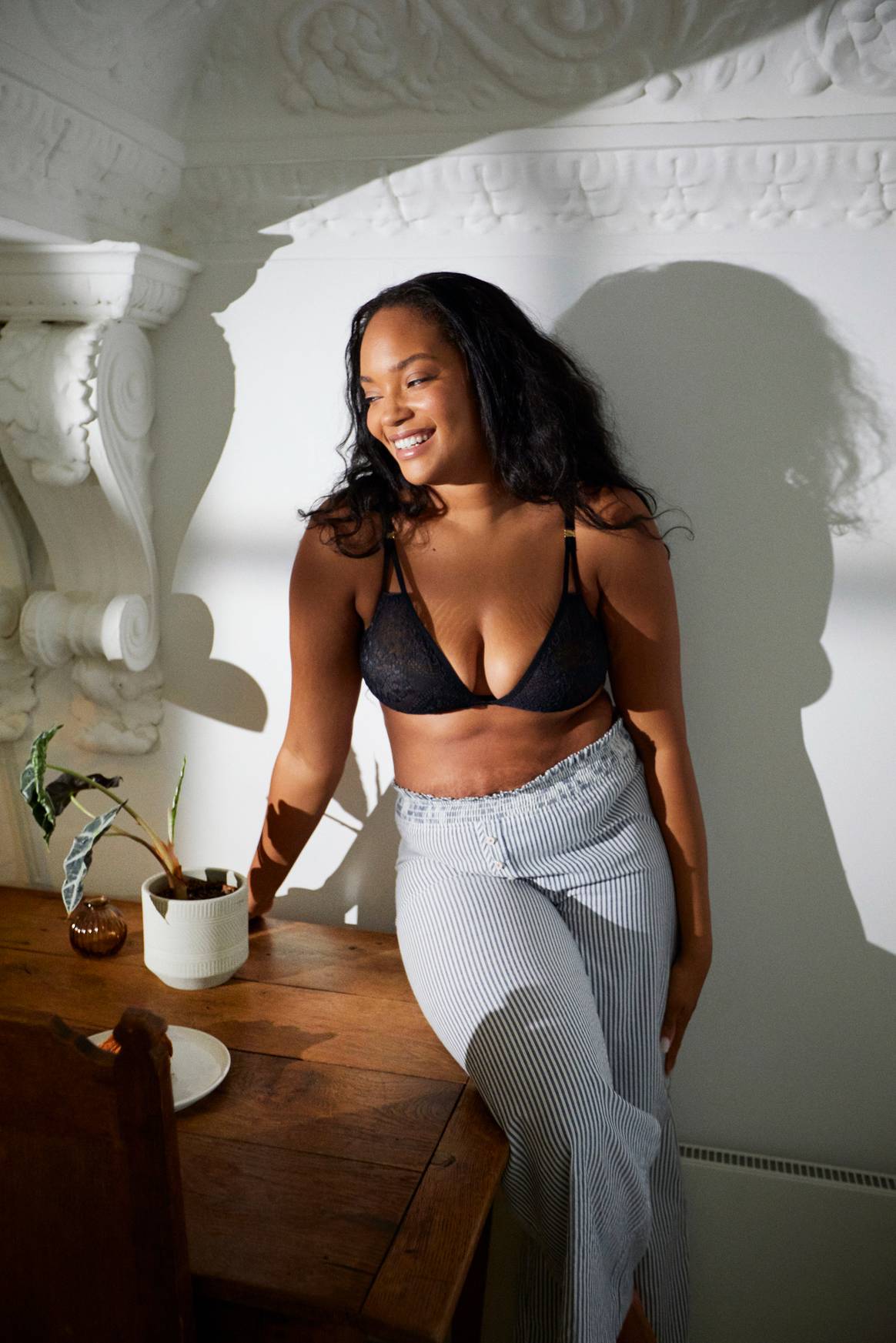
It also comes from our culture. The first thing we did was set up a ‘behaviours code’ stating how we were going to act. In the industry, it’s normal to start at the bottom and it can be quite demoralising if you have done four years of training to not be allowed to design. At Peachaus, there is no hierarchy, we give opportunities. [Junior designer] Lucy [Evans], for example, was a graduate who designed our sleepwear under the tutelage of [design director] Sophie [Morgenthaler]. We’re all about allowing people to blossom and flourish. There are bad habits in the industry, but we want to show you can be a commercial fashion business and you can do it in the right way.
What is the importance of collaboration to you?
The industry has been very much about competing and being secretive. I believe if we all actually just trust and collaborate, it can be a much better place. As such, in the last two years I’ve really tried to open up my network with other people and brands. I am part of By Women Built which is a network for female brand founders and is refreshingly supportive. From a creative point of view we’ve collaborated with artists like Jess Hartley and Duncan [Cheetham], who collaborated on our prints, Jayne Goulding on our embroideries and fine artist ceramicist Ian Thompson who made our beautiful limited edition candle vessels. We’ve talked about them too. The community I’m building around the brand is also growing. I’m meeting amazing women doing great things and it’s giving me so much hope.
How have you seen the industry itself evolve over recent years?
I didn’t realise how much was changing and how quickly. When you step out of the corporate world, you’re exposed to so much more. There are many brands trying to develop new technologies and interesting new products which are challenging the old guard of retailers and bringing wonderful new products to consumers. People are trying to do things in a way that is more honest. It’s still not the majority, but I think it’s setting a new standard, we can be a force for good. I think the only way we’re going to really drive change is by collaboration.
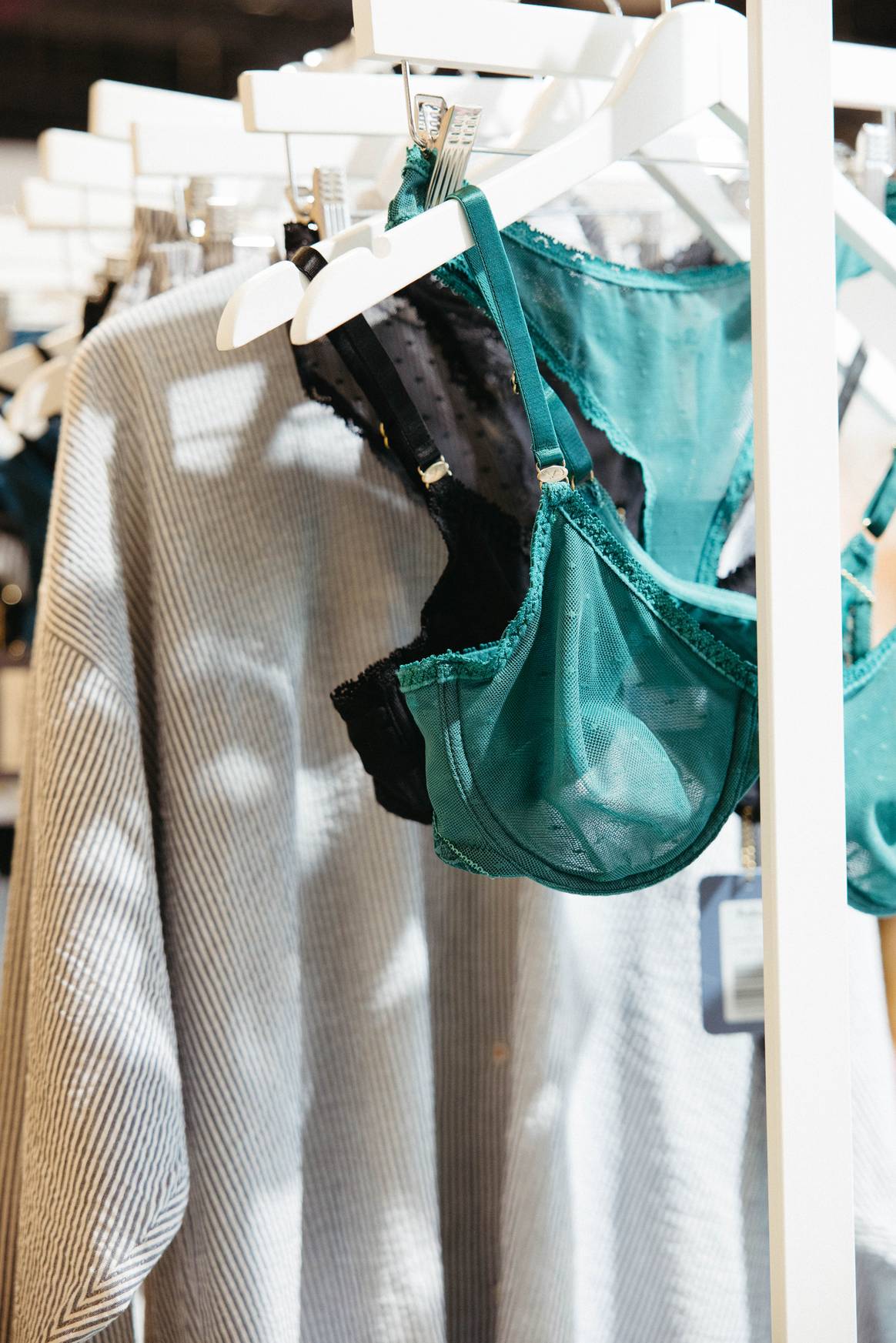
What is the brand’s relationship with trends?
I don’t specifically have fashion trends in my mind at all. We have a lot of knowledge, because of my background and through Sophie, who is an amazing technical designer. We know what fits our aesthetic. We know from the research groups what is important to customers in terms of how they like things to fit, what kind of colours they like. We use all those insights.
The reason we don’t follow trends is because I think they perpetuate a season of buy and demand, and then [the item] goes out of trend so it’s no longer desirable and therefore redundant. It’s not good for the kind of economy we’re trying to build, which is: buy less, buy better. Everyone loves our colours, but they are not a trend. We’re seasonless.
How do you decide on when to drop new products?
We have enough stock at the moment, so we aren’t pressured there. At the beginning, we started with underwear, then added sleepwear and then again expanded the underwear. We built up the collection, and then we’ve introduced some new colours. Anything new expands on what is already there, so ties back into the lifestyle concept and the colour palette. The range is made up of ‘icons’ so designs and blocks that we will become known for, for example our Sakura front fastening bra or our chicory PJ pant.
During our time, we’ve edited the collection, so we really know what’s working. We only bring in newness when we need to. We’re designing some key items of knitwear for layering and also developing swimwear for next summer, which will then complete the key categories for us.
My vision is to now bring to life some of the concepts we talked about when we first started, such as a multi-purpose community space. We are also testing some festivals this summer, so we’re working on what that expression is. We’re going to do more testing of parties and find the right ambassadors to run these. We need to make sure our tone of voice is consistent through all our experiences.
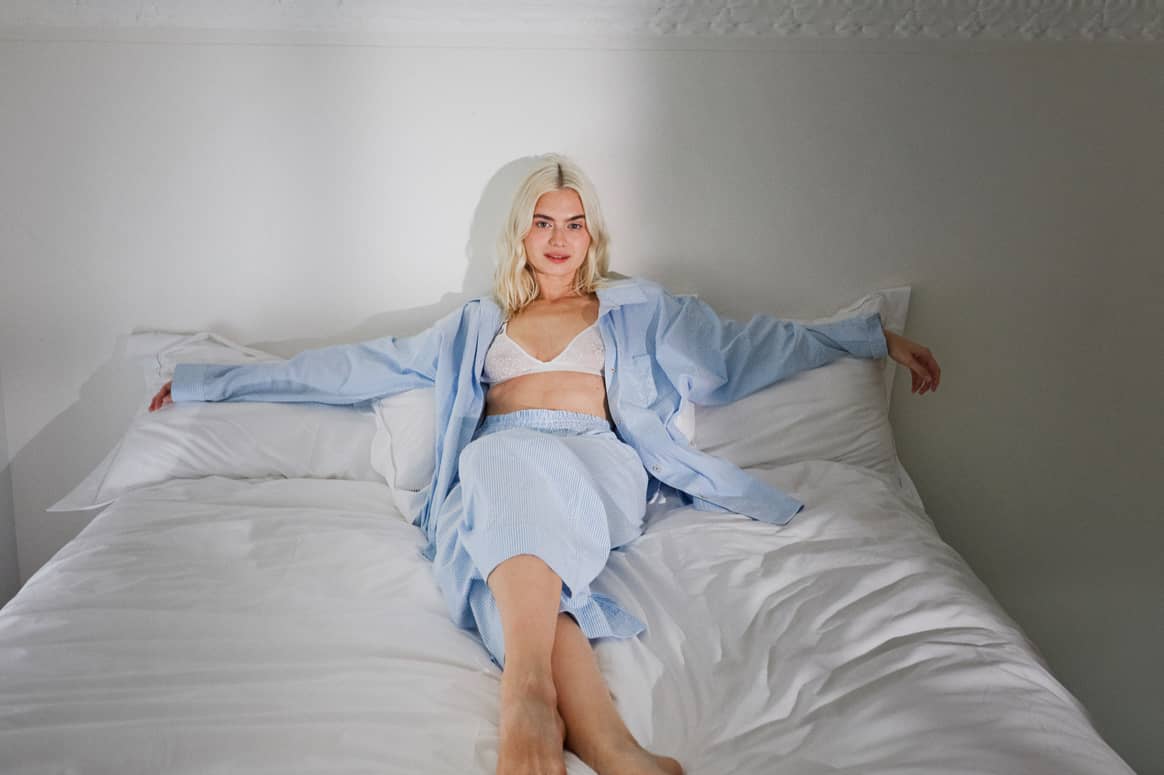
What is the appeal to venture into the event arena?
The parties and festivals are about connection between humans, and that’s why defining the experience is really important. At the opening of the party, we talk a little bit about the brand world, but then we give opportunities for women to check in with each other, see how they really are. It’s not a transaction, it’s a positive, supportive life experience, this is about self-discovery, women supporting each other.
Where do your products meet these women?
When we started we were about 90 percent direct-to-consumer through our website. We realised quickly we’d have to invest a lot in Google and Facebook, which didn’t sit comfortably with me, as a small brand we don’t have the big budgets to compete with other established brands.
Instead, we started to do shows and pop-ups around the UK. What we found was that our customers love us particularly when they can touch and feel and try on the product. Our website is a really high performing site, we spent a lot of money on our photography when we launched to bring the products to life on this channel but we have found that face-to-face retail has actually done well. We have been in Fenwick Bond Street over Christmas with a pop-up and are now looking at a shop in Covent Garden. I would say that our first 18 months have been our soft launch, we’ve done loads of learning, and we are now very confident about the brand and ready for our proper launch.
What kind of selection process do you have when it comes to third-party partners?
We’ve been meeting lots of independent retailers [at Salon International de la Lingerie] that have beautiful stores. And they know their customers. They aren’t looking for products to be discounted, they want to sell things at full price, and they want quality and individuality. We’d love to partner with one or two big retailers, who will look after the brand and represent us well but we don’t want to get into discounting, so we have to be quite selective.
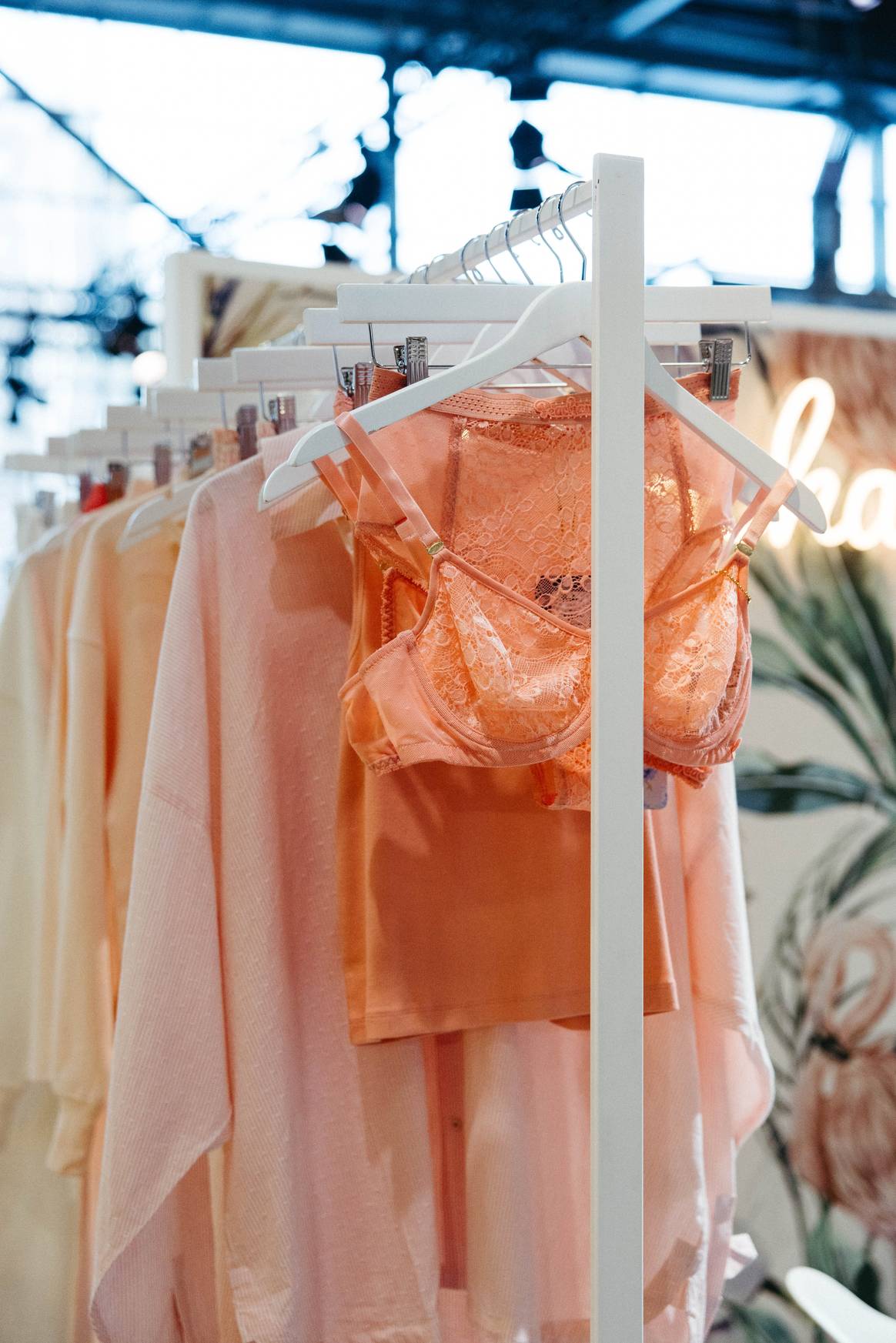
Does your presence at the fair reflect a further expansion into Europe?
The wholesale business’ revenue stream is really important for us and, yes, attending the fair is to open up new markets globally with the right partners.
Are there any key markets you are particularly eyeing?
[At the fair,] we’ve had a really good response from retailers in Belgium, France, Germany, Italy, Canada, Ireland and even Australia which is interesting for us, because obviously the concept originally was conceived there.
You’re also very selective about your materials. Can you tell me about that process?
Any brand launching today has got to start from using the right ethical materials. That’s very much what we had in mind. Our lace from [Italian company] Iluna, for example, is from their Green Line collection, and uses recycled nylon yarns. We also use bamboo in all our seamless underwear and ethical cotton in our lounge and sleepwear. The product has to be beautiful and also responsible. I’m not saying we’re perfect, but we certainly started in the very best way. We’ve got a long way to go to fix the issues left by the industry at large.
There’s a very select amount of fabrics and components. We talk about a ‘toolbox of materials’. Everything’s designed within this tool box in a considered and thoughtful way, with the full end-to-end vision of the product in mind. All of our garments are designed to last, to be cherished like an heirloom.
Is transparency also a core factor?
That was one of our values from the beginning. There’s too much smoke and mirrors. We said we’re going to be 100 percent transparent because we have nothing to hide. Honesty is putting your hands up sometimes as well and saying you haven’t got it right. Which I think people respect more. So we decided that we would publish who our suppliers were, and we will continue to do that.
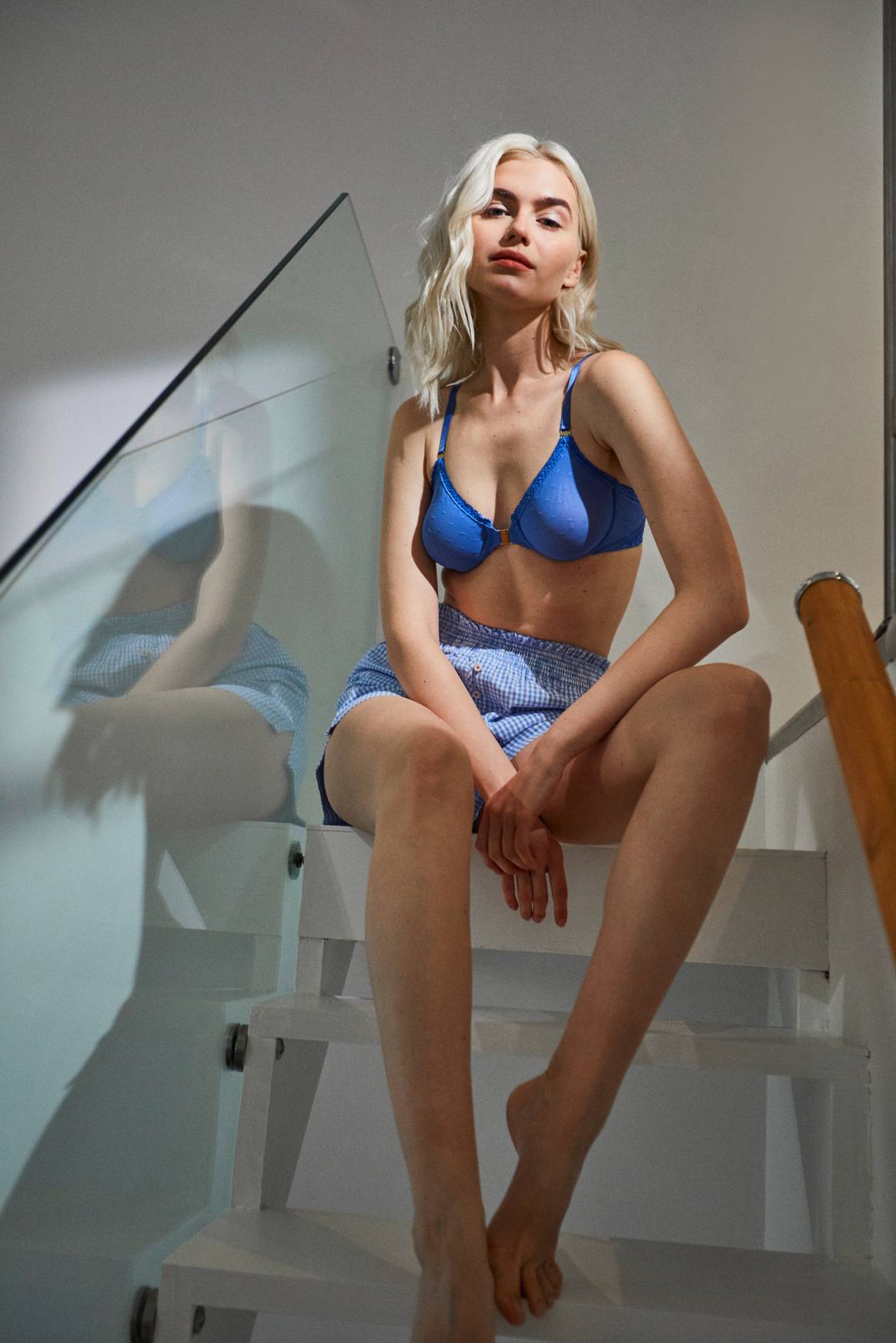
We’re still small, but as we get bigger, that will lead to more transparency. We are keen to use some of our profits when we are able to mentor new talent and help people who do not have the guidance and opportunities to get into the industry.
What is your perspective on the current state of funding and investing?
It’s a challenge getting funding for a retail business now because retail is fluctuating so much and so much change is happening. People are pulling back. As an investor, you’re not going to get a quick return. And a lot of the businesses aren’t going to make it. There is more confidence in tech or AI, where you will get a fast return. I am looking for more investment as we have big plans and I want to move quickly to realise them in order to drive the scale of change I believe needs to happen.
I’ve walked away from the big salary, I’ve cashed in all of my savings because I’m so passionate about my mission. I have a responsibility to do good and help the next generation. I don’t have the money to invest in businesses yet, but as I’ve been part of the problem with the fashion industry, as have lots of people, I feel I have a responsibility to be a part of the solution. I think our world is changing and I think it’s time for more people to step up and take some accountability for change.
And for women entrepreneurs, who have historically had a hard time gaining funding?
I understand from all the statistics that women are underfunded. I hope this will change as I am meeting many women who have incredible ideas but need funds to grow. Now that I am ready to grow post all our testing, this is the time I require decent funds but as I have already said it’s hard convincing people. That said I’m very lucky though, I have an amazing investment community so far around me. I’m just bringing in a new investor, Tracy Lewis [formerly from Wacoal Europe]. She loves the brand and she will support me alongside Cedric. She is the one who’s enabling me to do this show in Paris and to finally market the brand. She supports female entrepreneurs and loves our mission.
Following the launch of your campaign, what is next for Peachaus?
My objectives for the next six months are to grow our customer base and drive our revenues. With all the learnings, it’s time to really ignite the fire. After that I will be raising further funds to open our first community space, where experiences will meet product. We cannot rely solely on selling product because as our industry develops in the next few years we’re going to be using less natural resources, consuming less and building a circular economy, and there won’t be so much newness. So we believe it’s also about the experiences we’re going to be bringing to people to enhance their lives and existence.
